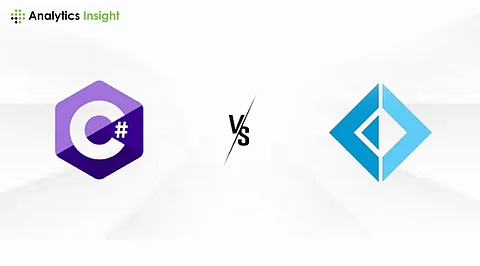

How do you know that a programming language is right not for a project? This longstanding debate between C# and F# proponents has been fueled by this question. Each language is different in its approach and provides different capabilities.
C# is rich in object-oriented principles with a sprinkling of functional features; F# contains this same functionality spinning in the opposite direction around a functional core dominated by imperative constructs. As functional programming moves up in the ranks and teams begin to standardize on the speed, efficiency and stability of their applications, comparing these two languages becomes more important.
Microsoft first released C# about two decades ago, as a multi-paradigm, object-oriented language. It’s the eighth most popular language by developers in 2022 and they love it for web, and cloud services but also for game development. C# is trusted by companies like Microsoft, Stack Overflow and TrustPilot and enjoys the balance of stability and flexibility for a wide selection of programming styles.
On the other hand, Microsoft introduced F# a functional first language in 2005. Compared to C#, it’s not as popular, but it has its passionate community, and Fable, Paket and Suave for JavaScript transcompilation, package management and web development naturally made it more interesting. By design, F#’s functional approach will prompt developers working on data-centric applications, finance or data science to be in sync with them, keeping in mind that, efficiency and reliability are important.
A choice of C# or F# also requires the understanding of imperative versus functional programming paradigms. C# uses imperative programming, which means that the flow of developing things is step by step indicating to developers how they can achieve the results. The style manages program state and change and is appropriate for applications that need to control precisely data and behaviour.
On the other hand, F# adopts functional programming, a declarative paradigm in which programmers describe what should be done, rather than how to do it. Functional code is stateless and order agnostic without effects, immutability is well used. Using it you´re typically better off. C#’s multi-paradigm structure however is more advantageous if object-oriented features and user interface elements are dominating the project.
Team dynamics also matter. C# may be more approachable to team members who are familiar with object-oriented programming but not functional techniques. On the other hand, F# is an efficient way to do functional programming for teams with expertise in functional programming.
The hybrid approach also works, where both languages compile to .NET Intermediate Language (IL) allowing the use of C# for object-oriented things and F# for data processing inside of the same project. While this requires careful coordination to get working, it can take advantage of F#'s functional strengths while remaining open to C#'s object-oriented way of thinking.
However, it’s fair to say that both F# and C# is a matter of a project need, team expertise and how the functional programming requirements for an application. C# is a popular choice due to its versatility and ease of use, but compared to F# a pure functional experience can reduce the complexity involved in very data-heavy tasks. To achieve a balance between a more efficient development process and a higher quality application, teams try to align the language selection with project needs and goals.
